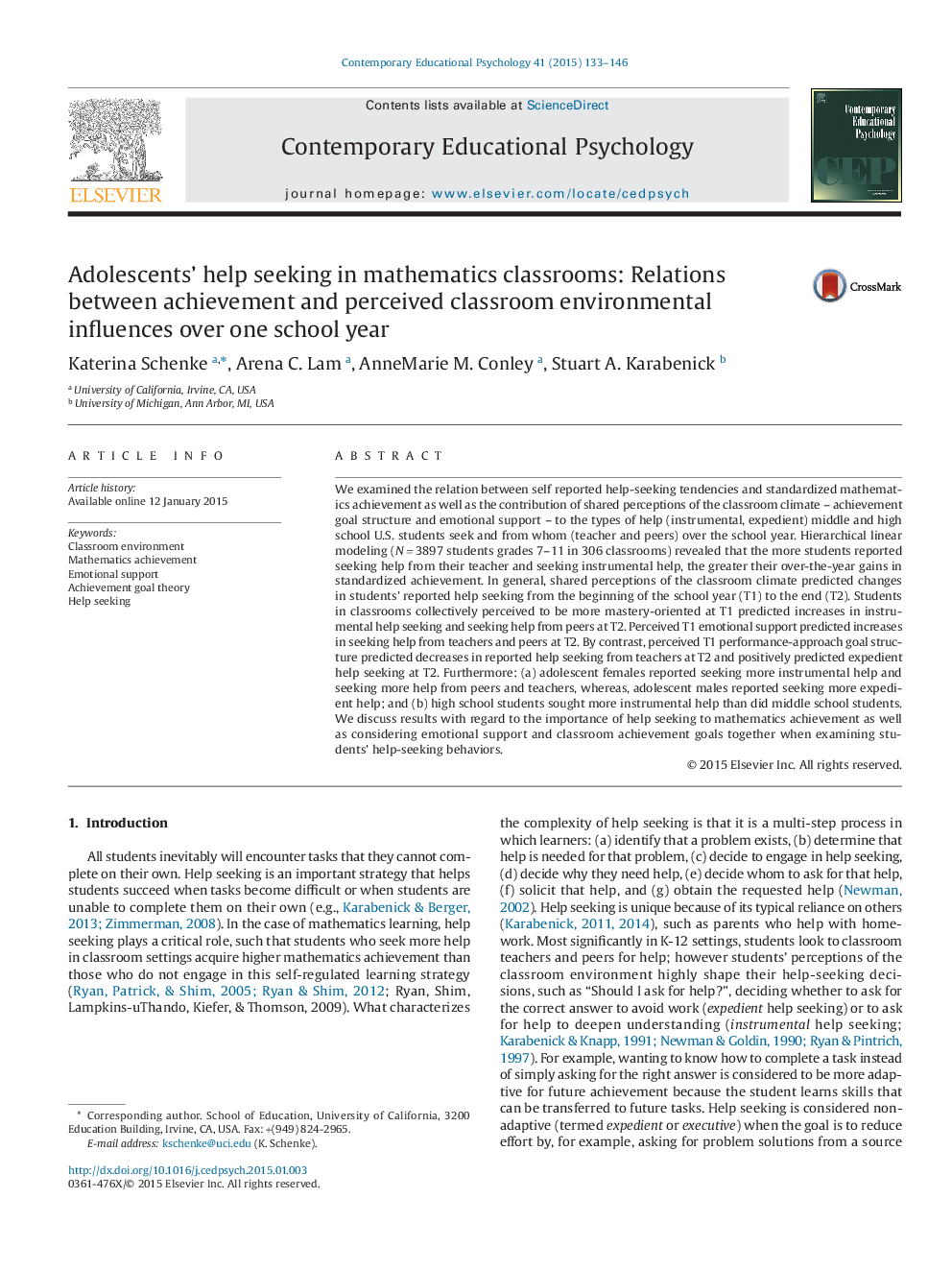| Article ID | Journal | Published Year | Pages | File Type |
|---|---|---|---|---|
| 352618 | Contemporary Educational Psychology | 2015 | 14 Pages |
•Mastery classrooms positively associated with help from peers and instrumental help.•Performance-approach classrooms inversely associated with seeking help from teacher.•Emotional support positively associated with seeking help from teacher and peers.•Instrumental help and seeking help from teacher linked with math test score gains.•Developmental and gender differences in help seeking were found.
We examined the relation between self reported help-seeking tendencies and standardized mathematics achievement as well as the contribution of shared perceptions of the classroom climate – achievement goal structure and emotional support – to the types of help (instrumental, expedient) middle and high school U.S. students seek and from whom (teacher and peers) over the school year. Hierarchical linear modeling (N = 3897 students grades 7–11 in 306 classrooms) revealed that the more students reported seeking help from their teacher and seeking instrumental help, the greater their over-the-year gains in standardized achievement. In general, shared perceptions of the classroom climate predicted changes in students' reported help seeking from the beginning of the school year (T1) to the end (T2). Students in classrooms collectively perceived to be more mastery-oriented at T1 predicted increases in instrumental help seeking and seeking help from peers at T2. Perceived T1 emotional support predicted increases in seeking help from teachers and peers at T2. By contrast, perceived T1 performance-approach goal structure predicted decreases in reported help seeking from teachers at T2 and positively predicted expedient help seeking at T2. Furthermore: (a) adolescent females reported seeking more instrumental help and seeking more help from peers and teachers, whereas, adolescent males reported seeking more expedient help; and (b) high school students sought more instrumental help than did middle school students. We discuss results with regard to the importance of help seeking to mathematics achievement as well as considering emotional support and classroom achievement goals together when examining students' help-seeking behaviors.
